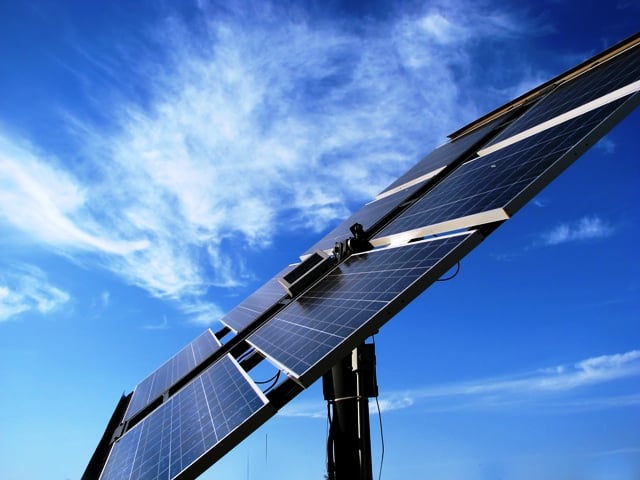
Punjab Chief Minister Maryam Nawaz has made several important decisions aimed at transforming the agriculture, solar energy, and industrial sectors in Punjab.
During a review meeting on Sunday, chaired by Senior Provincial Minister Marriyum Aurangzeb, progress on various sectors, including agriculture, energy, and industry, was discussed.
As part of her push to boost agricultural development, the chief minister has directed the allocation of additional resources to accelerate the distribution of tractors and other agricultural equipment.
By February 28, 2,000 more superseders will be provided to farmers at discounted rates, in addition to the 10,000 tractors already allocated.
In line with her plan to expand the free solar energy initiative, the chief minister decided to expedite and expand the program, with a focus on providing free solar power to citizens across Punjab. A major decision was also made to transition government buildings to solar energy and complete renewable energy projects by June.
Maryam Nawaz also announced plans to establish a program for the restoration and development of citrus fruits, such as oranges and kinnow, as well as creating model agricultural estates in Punjab. The government will offer facilities to increase production and boost exports.
To promote solar energy further, an additional fund of 6 billion rupees will be allocated. Additionally, the process of establishing a fund to generate electricity from waste will be completed by March. A review of the solar energy transition program for various government institutions, including the Punjab Assembly and the Institute of Cardiology, will also take place.
The Chief Minister also set a deadline to complete the 'Garments Cities' project in Punjab by March and instructed the development of a feasibility study for establishing a 300-acre Industrial and Technology Park in Narowal and a technology university in Kasur.
To advance modern farming methods, the government will set up a monitoring system in every division to educate farmers about modern techniques. The establishment of an inspector's office to monitor agriculture and expedite recruitment was also approved.
Under the Green Tractor Scheme, over 4,500 tractors have already been distributed to farmers, and superseders have been provided in several regions, including Faisalabad, Gujranwala, Sargodha, and Lahore. Additionally, solar systems have been provided to 404 poor families in electricity-deprived villages.
With these comprehensive efforts in place, the Punjab government aims to bring prosperity through agricultural, industrial, and solar energy development, with a focus on modern technologies and skills enhancement.
Senior officials, including Nabeel Ahmad Awan, Asif Tufail, and other secretaries, attended the meeting and presented updates on various ongoing and new schemes under the Annual Development Program (ADP). The meeting highlighted the government's commitment to creating an agricultural and industrial revolution in Punjab, with Maryam Nawaz at the forefront of these transformative initiatives.
Earlier, CM Maryam Nawaz launched the Dhi Rani Programme by attending a mass wedding ceremony of 51 couples in Lahore.
She said on the occasion, "A record 1,500 couples are getting married in a day across the province."
She added, "A budget of Rs1 billion has been allocated for the programme."
She highlighted that 3,000 weddings would be hosted in the first phase. All couples will be presented gifts of furniture and other essential items besides Rs100,000.
The chief minister also launched the Dhi Rani Card. The couples will be able to receive the amount through the card.




1736677459-0/diddy-(2)1736677459-0-165x106.webp)
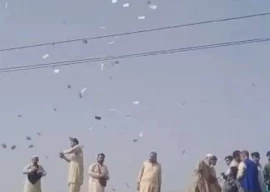

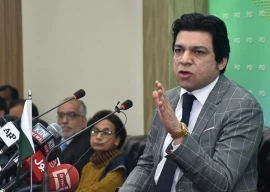





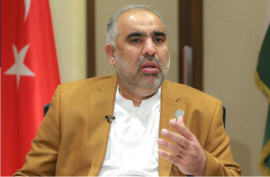
1732012115-0/Untitled-design-(14)1732012115-0-270x192.webp)
1736508423-0/Express-Tribune---News-Desk-(9)1736508423-0-270x192.webp)

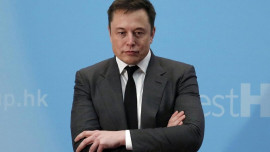
1736495887-0/sidra--(63)1736495887-0-270x192.webp)
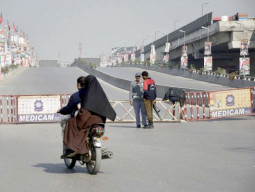
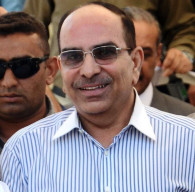






COMMENTS
Comments are moderated and generally will be posted if they are on-topic and not abusive.
For more information, please see our Comments FAQ